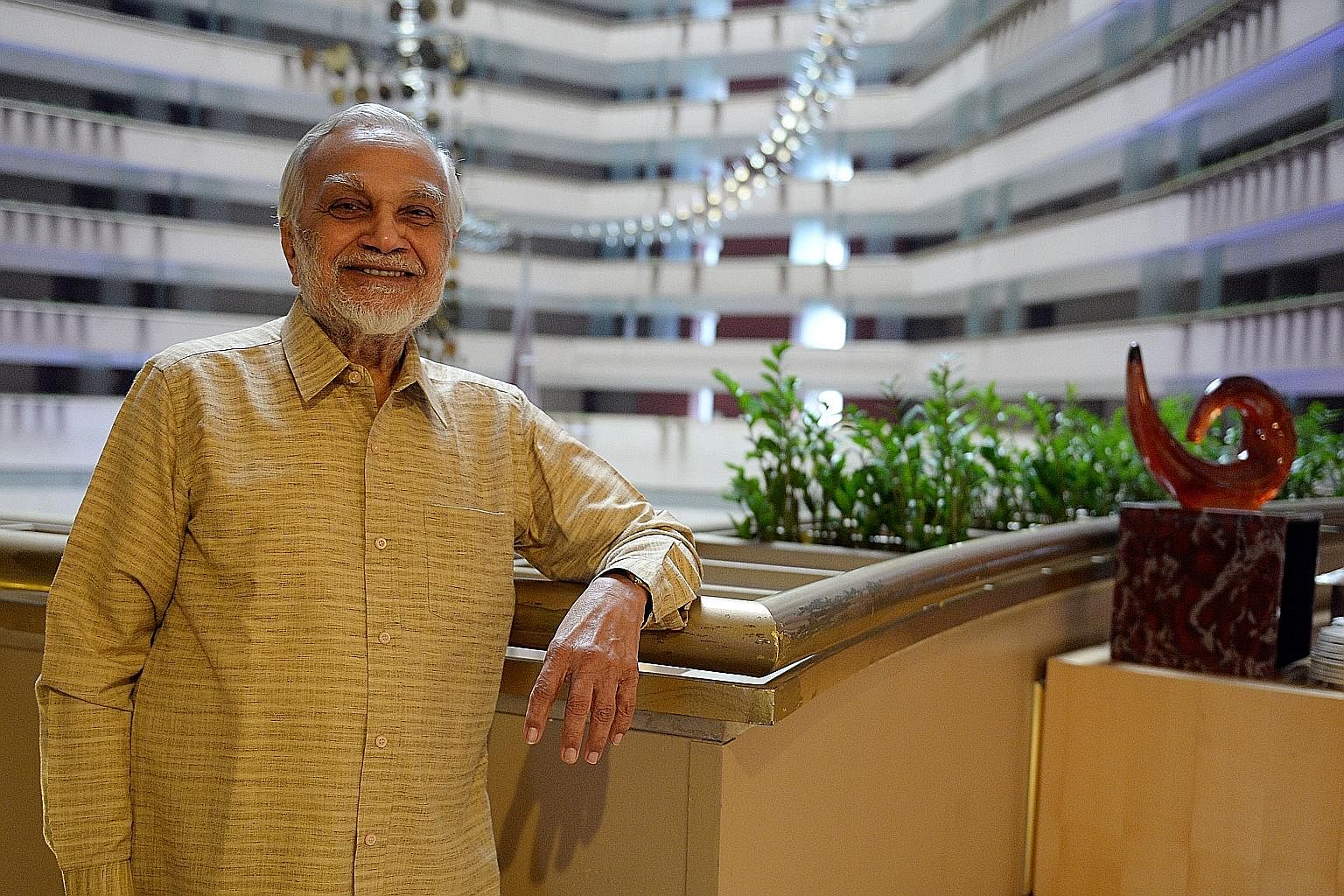In 1959, Indian student Bhikhu Parekh landed in London and was greeted by row after row of shop signs with the words "no dogs and no blacks".
The man now known as Lord Parekh, 80, was born the eldest son of a goldsmith and a housewife in the small village of Amalsad in India's north-western state of Gujarat.
Now a Briton and a peer for life, he has been a member of his country's House of Lords since the year 2000.
He has risen well above the caste system into which he was born, and whose lowest rung was the untouchables. He grew up watching them dig through rubbish heaps with their hands, and was scolded by his mother and made to take a ritual bath after he accidentally brushed past an untouchable.
In an interview here last Tuesday, he recalls: "Like any child growing up in that kind of environment, you take things for granted. It was only when I went to England that I really felt like an untouchable myself."

Lord Parekh, who was on his first trip to Singapore last week, ended up living in Britain for more than 50 years.
In that time, the expert on multiculturalism marvels, Britain has had a sea change in its habits. It is "very striking" that Britons, used to a traditional bland diet, now cite chicken tikka masala as their favourite dish. He notes too that many among their cultural heroes are now black.
Britain's minorities managed to "hold up a mirror to the country and let it take a second look at itself". They have also helped the country look outwards, by being its commercial and cultural bridges to other parts of the world, he says.
The man, who teaches at the University of Westminster after stints at the universities of Harvard, Pennsylvania and McGill, says multiculturalism has two halves: one is enabling minorities to live their own lives without feeling besieged by the majority and the other is integrating them.
But most people focus too much on the first, to the extent of over-pampering minorities, that they forget to work on the second.
The end in mind, he stresses, is to have "diversity permeating unity, and unity permeating and integrating diversity".
A good example of that, he says, is when two people from different races speak English with different accents. As he puts it: "We share a common language, we understand each other. I take delight in the fact that you speak it your way, and you take delight in how I do it my way."
With an increasingly interconnected world, modern living is all about getting on with strangers and their differences. So, he adds, the only question is: How do we live with differences?
Singapore, he says, "is to be congratulated" for its many efforts in creating opportunities for its peoples to do so, including by creating public spaces where everyone can mingle freely. Take the Sports Hub, which has been built for everyone's enjoyment and, as it sits on a prime waterfront, has million-dollar views.
"That's absolutely wonderful," he says. "So the state belongs to the people and the people can take ownership of their state, which is what they do when you provide spaces like that."
That is all part of what Lord Parekh calls "gentle mixing and coaxing by the state".
In Britain's case, he notes, four things have helped foster racial harmony. First, when the Labour Party was governing, it introduced a raft of laws that banned racial discrimination and promoted better relations among the races. Second, public broadcaster BBC recruited people of different ethnicities to be its collective public face. Third, religious leaders worked hard to strengthen bonds between communities. And fourth, there were many influential liberal thinkers who championed diversity.
With all its limitations, he says, Singapore has done well because its climate of civility and tolerance is palpable. He then cautions: "Some take multiculturalism to mean granting equality to minority cultures. Now, how much equality can you give? Because you have your own culture and that culture dictates what you can do."
So, he stresses, countries and societies should not be too hard on themselves if championing multiculturalism results in "occasional exaggerations or excesses". That, he says, is because multiculturalism is really a "completely radical doctrine" because " never in human history had minorities been invited to take part in a national conversation".
"That happened only after World War II. So when implementing a radical doctrine like this, you can occasionally get things wrong."
Singaporeans, he says, should now aspire to create a future in which "everyone here can feel at home". To that end, he suggests, Singaporeans should build on 50 years of getting along, by working towards a common identity, by answering two questions: First, what holds Singaporeans together? And second, what are we likely to do together?A common identity is a product of our past and a commitment to the future."
It should go beyond pursuing common values that are too universal, such as nation above self, family before the individual and so on, because "common values cannot unite a country... They are common to all human beings, not special to a country".
Instead, it can try to capture the ideas of harmony in government policies. "Beautiful words can become slogans that sound hollow unless they are filled with meaning in terms of policies," he says.
In this Jubilee year, and recalling the race riots of the 1950s and 1960s, he adds that Singaporeans should be proud that "you have collectively come so far and if you persist, you can collectively go even further".
As for how far his adopted country has come, he says wryly: "A nation which used to close its shops at 6 o'clock now finds corner shops run by Asians open till midnight and selling different things such as samosas."

